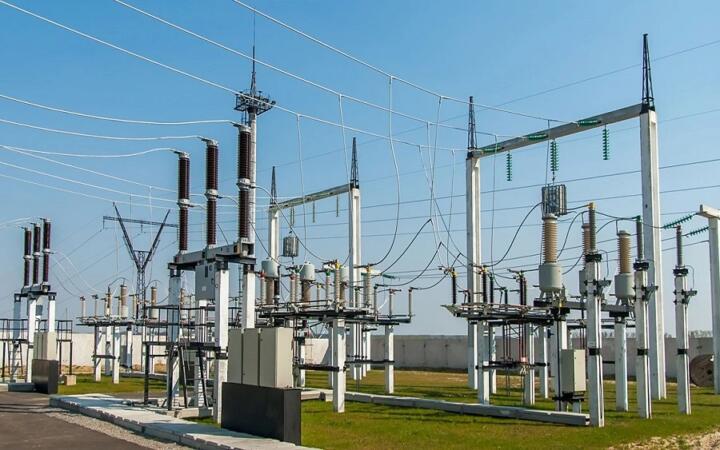Power generation companies (GenCos) in Nigeria are sounding the alarm over a rapidly escalating debt crisis, warning that failure to address a debt burden now estimated at up to N5.2 trillion could trigger widespread shutdowns and plunge the country into prolonged blackouts.
Industry sources say the figure combines roughly N4.7 trillion owed directly to GenCos by market players—federal agencies, Bulk Electricity Trading bodies, and distribution companies—and an additional N500 billion in late payments and legacy obligations. GenCos claim they currently receive less than 30 percent of their monthly invoices for electricity delivered to the national grid, saddling them with severe liquidity constraints that jeopardize operations across Nigeria’s generation subsector.

Colonel Sani Bello (rtd.), Chairman of the board trustees of the Association of Power Generation Companies (APGC), cautioned this week that if the steep debt burden is not settled, GenCos may have no choice but to suspend production—a move that could result in national grid collapse and widespread disruption. The companies noted that they were owed N2 trillion for power supplied in calendar 2024 and N1.9 trillion in legacy arrears inherited from prior years. Additional recent invoices have boosted total exposure to the broader N5.2 trillion range.
According to GenCos, the shortfall stems from systemic weaknesses: delayed government subsidy payouts, a “waterfall” payment structure that prioritizes other market participants ahead of generators, and a lack of firm, bankable contracts. Combined with rising foreign exchange costs, high corporate taxes, regulatory fees, and excess operating overheads, GenCos say their ability to finance fuel procurement, maintenance, and operational expansion is severely compromised.
In response to the crisis, the federal government has pledged an intervention package worth N2 trillion in the 2025 budget. This scheme combines part-cash settlements and tradable promissory notes intended to provide GenCos with access to liquidity through financial markets. However, executives from several GenCos expressed skepticism, noting that similar pledges in the past have failed to materialize fully.
GenCos argue that the current funding gap puts them at risk of total operational failure. With average power generation struggling at just over 4,000 to 5,700 megawatts—well below the sector’s installed capacity of 13,000 megawatts—experts warn that further deterioration in liquidity could push the national grid to collapse. Nigeria experienced numerous partial or full grid collapses in 2024 alone, triggering huge losses to generation firms and eroding consumer confidence.
The companies have appealed for a structured and enforceable payment plan that includes: priority payment of invoices under the waterfall arrangement; renegotiation or restructuring of outstanding debts; and transparent schedules for subsidy compensation. They argue that such measures are essential to prevent a systemic collapse that would severely hamper service delivery across the country.
Utility analysts emphasize that the consequences of a shutdown would be dire. Small businesses, hospitals, schools, and manufacturing firms already operate under unreliable power and high costs. A full blackout could exacerbate economic fragility, deepen hardship, and disrupt essential services—affecting millions of Nigerians nationwide.
Long-standing structural problems within Nigeria’s power landscape have worsened over the years. Privatization in 2013 was expected to attract investments and improve reliability, but intermittent grid collapses, delayed payments, gas supply deficits, and tariff shortfalls have persisted. Consumers pay as low as ₦225/kWh in higher bands, but power supply windows remain unpredictable—further reducing revenue recovery for distribution firms and GenCos alike.
Recent tariff reforms, including a targeted increase for high-usage Band A consumers, helped boost market revenue by approximately 70 percent year-on-year—from around N1 trillion in 2023 to N1.7 trillion in 2024. Subsidy costs dropped by nearly 35 percent. Yet GenCos say these improvements have had limited impact on their revenue stream, as debts remain substantial and payments skewed toward better-positioned players in the energy supply chain.
Government and energy officials maintain that the situation is being addressed. The Minister of Power has reaffirmed the administration’s commitment to sector stabilization via renewed budgetary allocations and reforms. Plans are also underway to separate System Operator responsibilities from TCN and to unbundle regulatory frameworks under the Electricity Act 2023. These moves aim to enhance transparency, improve tariff setting, and strengthen governance across generation, transmission, and distribution.
Still, GenCo executives warn that without immediate action on debt clearance and improved liquidity, operational shutdown is increasingly likely. That, they say, would create a national emergency, undermining recent gains in electricity supply and eroding investor confidence in the sector.
The unfolding crisis underscores the urgent need for a cohesive strategy—enforcing contractual discipline, guaranteeing timely payments, and prioritizing operational sustainability. Until these issues are resolved, GenCos remain in jeopardy, and Nigeria’s ambitious expectations for steady and affordable power remain at risk.
Support InfoStride News' Credible Journalism: Only credible journalism can guarantee a fair, accountable and transparent society, including democracy and government. It involves a lot of efforts and money. We need your support. Click here to Donate
